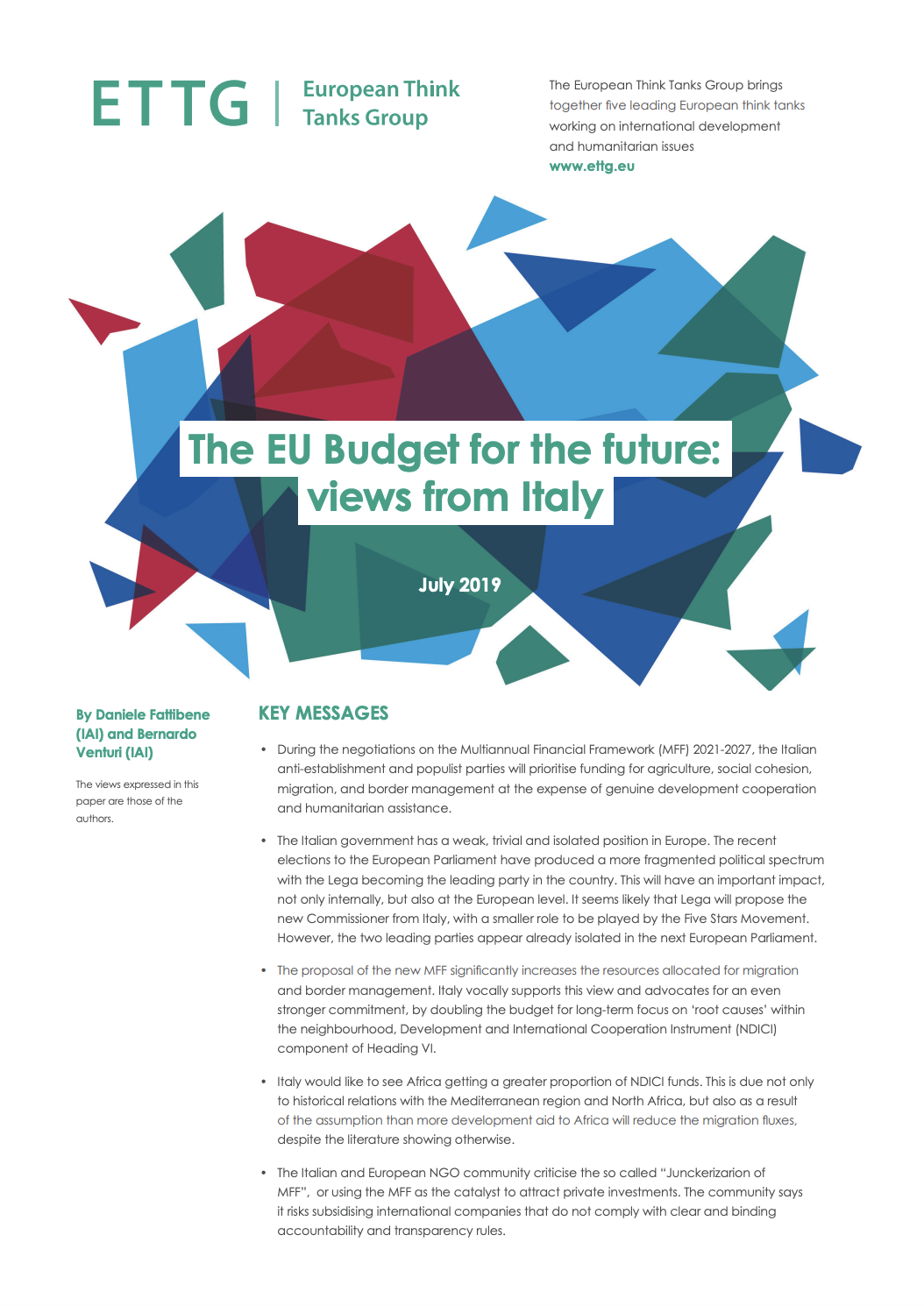After the recent European elections in Italy, a populist leadership is set to be the driver of the Italian European agenda for the next months. These populist forces are destined to play a marginal role in the negotiations over the new Commission as well as the new Multiannual Financial Framework (MFF) 2021-2017. The growing role of Lega within the Government is expected to have a deep impact on the MFF, with agriculture, cohesion funds, migration and border management likely to become the real priorities for Italy at the expense of the development cooperation and humanitarian assistance.
Key messages
• During the negotiations on the Multiannual Financial Framework (MFF) 2021-2027, the Italian anti-establishment and populist parties will prioritise funding for agriculture, social cohesion, migration, and border management at the expense of genuine development cooperation and humanitarian assistance.
• The Italian government has a weak, trivial and isolated position in Europe. The recent elections to the European Parliament have produced a more fragmented political spectrum with the Lega becoming the leading party in the country. This will have an important impact, not only internally, but also at the European level. It seems likely that Lega will propose the new Commissioner from Italy, with a smaller role to be played by the Five Stars Movement. However, the two leading parties appear already isolated in the next European Parliament.
• The proposal of the new MFF significantly increases the resources allocated for migration and border management. Italy vocally supports this view and advocates for an even stronger commitment, by doubling the budget for long-term focus on ‘root causes’ within the neighbourhood, Development and International Cooperation Instrument (NDICI) component of Heading VI.
• Italy would like to see Africa getting a greater proportion of NDICI funds. This is due not only to historical relations with the Mediterranean region and North Africa, but also as a result of the assumption than more development aid to Africa will reduce the migration fluxes, despite the literature showing otherwise.
• The Italian and European NGO community criticise the so called “Junckerizarion of MFF”, or using the MFF as the catalyst to attract private investments. The community says it risks subsidising international companies that do not comply with clear and binding accountability and transparency rules.
Read the full paper here.
Authors: Daniele Fattibene (IAI) and Bernardo Venturi (IAI).
Photo courtesy of Lukasz Radziejewski via Flickr.




